Proposals form part of 4ha masterplan for city’s Digbeth district
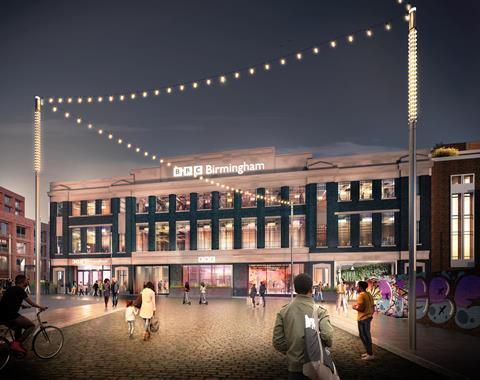
Glenn Howells Architects is giving a public airing to proposals to transform a 4ha chunk of Birmingham’s Digbeth district with a scheme that includes the delivery of a new base for the BBC in the city.
The corporation announced last month that it would move out of its home of nearly two decades in the city centre – Associated Architects’ Mailbox development – for a new HQ at the former Typhoo Tea Factory in Digbeth in 2026.
The BBC moved its Birmingham operations to the Mailbox – a repurposed Post Office building close to the city’s Gas Street basin – in 2004, freeing up its John Madin-designed former Pebble Mill Studios in Edgbaston for redevelopment.
The Typhoo Tea Factory closed in 1978 and has long been disused. The building fronts Bordesley Street, roughly 200m east of Birmingham’s Selfridges building, designed by Jan Kaplický and Amanda Levete’s Future Systems practice.
Glenn Howells’ masterplan for the area includes both the factory, the Typhoo Wharf and the nearby canal basin. It will complement the planned arrival in the area of Digbeth Loc Studios, where the BBC’s MasterChef show is due to be filmed from 2024.
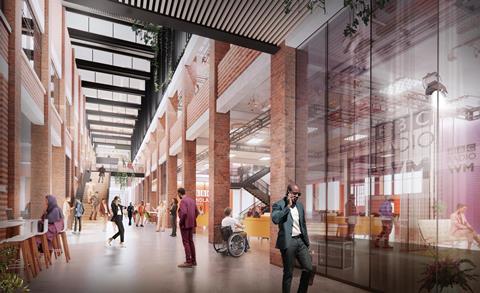
Sandeep Shambi, a partner at the practice, said the BBC’s decision to move to the Typhoo building was an important reinforcing factor for Digbeth’s emerging status as Birmingham’s cultural epicentre.
“The Typhoo Tea Factory will provide the BBC with an unrivalled location within minutes of HS2, flexibility to adapt and grow, and presents an opportunity to create a unique, sustainable workplace whilst reinvigorating a piece of Digbeth’s heritage,” he said.
“The building itself dates back to 1929 and has been derelict for over 40 years. By opting for adaptative reuse over new build, we are bringing it back to life for the next 100 – not only to keep this historical legacy going, but to uphold the low-carbon principles we all strive for.
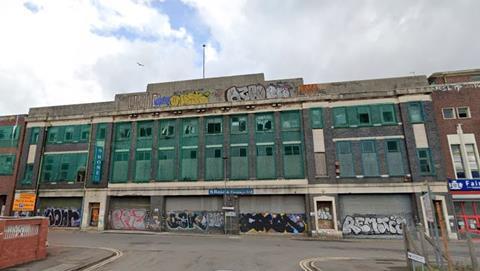
“Working with the building fabric in this way is about connecting the context of the past with the city’s aspirations for the future. Typhoo Wharf will be a tribute to that heritage ideal.”
The practice, which is based in Digbeth, said it was aiming for a BREEAM “outstanding” rating for the Typhoo Tea Factory.
Developer Stoford said the BBC would be committing to a 20-lease on the building.
Glenn Howells’ pre-application masterplan is out to consultation until September 22.


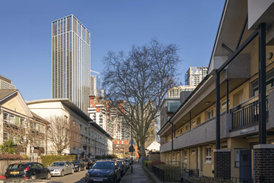
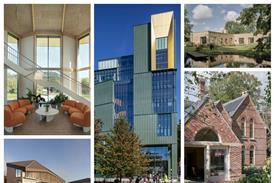

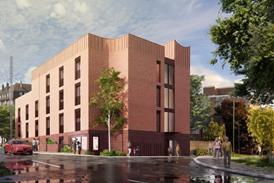










1 Readers' comment